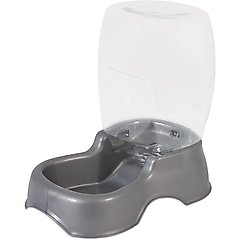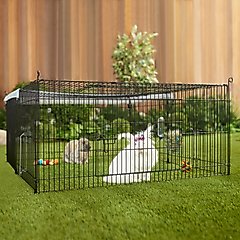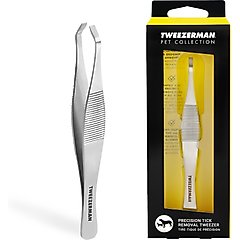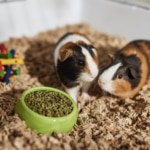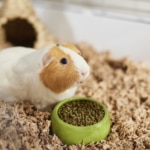Safety Tips for Taking Your Guinea Pig Outside
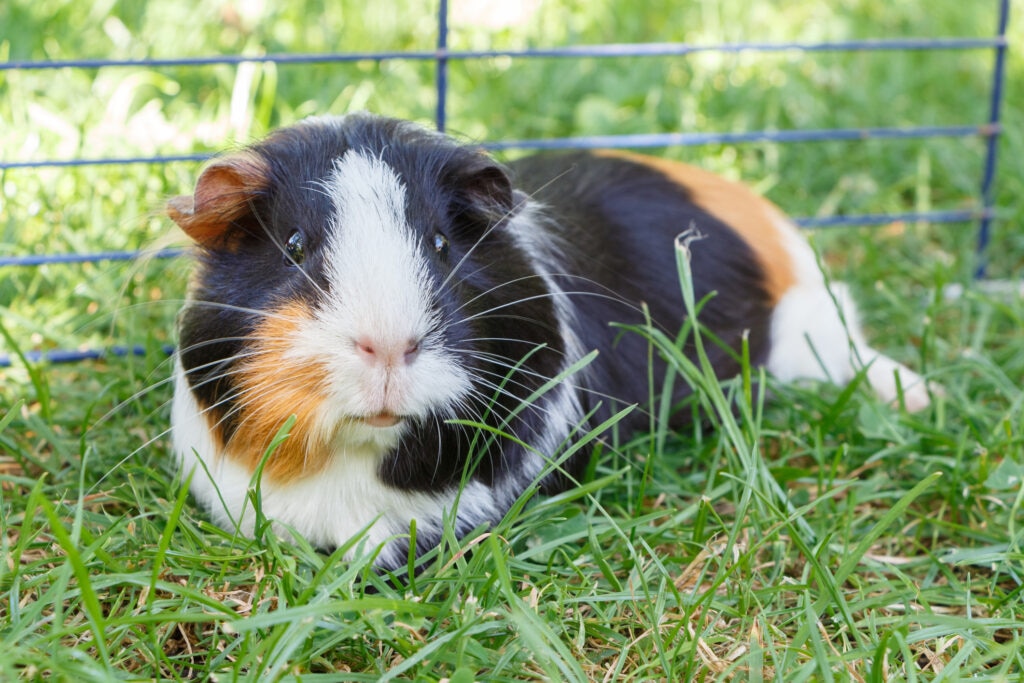
Photo by oceane2508/iStock/Getty Images Plus
Outdoor time can be a fantastic way to enrich your guinea pig’s life and boost their well-being—as long as it’s done safely. Guinea pigs are curious creatures who enjoy new sights, sounds, and smells, but their small size and delicate nature mean they’re vulnerable to a range of outdoor hazards.
From keeping them safe from predators to avoiding harmful chemicals and extreme weather, here are essential safety tips for taking your guinea pig outdoors.
Is it Safe to Take Your Guinea Pig Outside?
Yes, it can be safe—and even enriching—for guinea pigs to spend time outside. But you don’t want to just set your guinea pig in the grass and walk away.
To safely take your guinea pig outside, you need to consider the weather, protect them from predators, and avoid exposure to chemicals such as pesticides and herbicides. A secure setup and close supervision are essential to keep them safe while they explore. Additionally, not every guinea pig is a good candidate for outside time.
According to Colleen Roman, DVM, RVT, an exotic animal veterinarian and founder of AnimALL Mobile Veterinary Service in the Atlanta area, all healthy guinea pigs can enjoy the outdoors, including skinny pigs (hairless guinea pigs). However, skinny pigs require special consideration. Because they are sensitive to temperature changes and sun exposure, they should always be kept in full shade. And while it might seem like a good idea, sunscreen is a no-go—even pet-safe versions can irritate their delicate skin, and human products are toxic if ingested.
Outdoor time is not recommended for sick guinea pigs, especially those with respiratory conditions. These piggies are more vulnerable to stress and heat-related complications, and being outside could worsen their condition.
Rae Porter-Blackwell, DVM, ABVP, a board-certified exotic companion mammal specialist at The Center for Bird and Exotic Animal Medicine and vice president of the Association of Exotic Mammal Veterinarians (AEMV), adds that guinea pigs taking doxycycline (a type of antibiotic) should be kept out of the sun because their skin can be more susceptible to burning, even if they are fully furred.
Benefits of Taking Your Guinea Pig Outdoors
Guinea pigs can benefit from safe outdoor time on a mild, sunny day. According to Dr. Roman, safe outdoor time provides benefits that go beyond the basics of exercise or stimulation—it can also support their physical and mental well-being.
The benefits of taking your guinea pig outside include:
- Sunlight: Direct sunlight (UVB rays) allows mammals to synthesize vitamin D3 through their skin. This is an important nutrient that aids in calcium absorption for strong bones.
- Fresh air: The fresh air is also beneficial for guinea pigs. Clean air can support healthy respiration, particularly in guinea pigs who are exposed to dust or bedding particles.
- Mental health and enrichment: Being outside is a full-on sensory experience for guinea pigs. They are exposed to new sights, smells, and sounds, all which provide mental stimulation and a better quality of life.
- Physical activity: A safely enclosed outdoor space gives your guinea pig more room to explore and move around. This encourages natural behaviors like walking, hopping, and even short bursts of running, which supports overall mobility and can help your guinea pig maintain a healthy weight.
- Reduced cage aggression and boredom behaviors: Regular outdoor enrichment can help reduce unwanted behaviors like excessive chewing on cage bars, pacing, or vocalizing—all signs of boredom or frustration. Giving your guinea pig new environments to safely explore can lead to a calmer, more content piggie overall.
Risks of Taking Your Guinea Pig Outside
There are also risks to taking your guinea pig outside. Guinea pigs are small, sensitive animals, and the outside world can be unpredictable.
Common hazards to watch out for include:
- Extreme temperatures: Guinea pigs are sensitive to heat and cold. Temperatures higher than 80 F can put them at risk for heatstroke, while temperatures below 65 F may cause them to become chilled or stressed. Guinea pigs also don’t tolerate significant temperature changes, so the outside temperature shouldn’t be much different than the inside temperature, according to Dr. Porter-Blackwell.
- Too much sunlight: Direct sun can quickly cause guinea pigs to overheat, especially since they can’t sweat to cool down. Shade is essential to help prevent dehydration and heat exhaustion.
- Predators: Guinea pigs have plenty of outdoor predators. According to Dr. Roman, you’ll need to watch out for predators on land, such as cats, dogs, foxes, and coyotes, as well as predators in the sky, such as hawks, falcons, and owls. Even if a predator doesn’t make contact, the sight or sound of one can cause your pig to panic and injure themselves.
- Pesticides and toxic plants: Lawn treatments, herbicides, and fertilizers can be harmful if ingested or absorbed through the skin. Many common backyard plants and wild mushrooms are also toxic to guinea pigs.
- Parasites: Outdoor time increases exposure to fleas, ticks, mites, and other pests. These parasites can cause itching and skin irritation and can even transmit diseases.
8 Tips for Safely Taking Your Guinea Pig Outside
If you’ve weighed the benefits and risks and decided to give your guinea pig a little outdoor time, great! But preparation is key, since even short trips outside can go wrong without the right precautions. =
Here are eight expert-backed tips to help you safely provide outdoor time for your guinea pig:
1. Provide constant supervision. Always watch your guinea pig closely when they spend time outdoors. Keep an eye out for predators and any abnormal behavior and be prepared to take quick action to keep your guinea pig safe.
2. Watch the temperature and humidity. Guinea pigs are sensitive to heat and cold. Avoid taking them out if it’s hotter than 80 F or colder than 65 F. The ideal humidity range for them to be OK outside is 40–70%. Ensure they always have shade and cool water. Heatstroke can set in quickly, especially in direct sun.
Recommended Product
3. Provide secure shelter. Guinea pigs shouldn’t be allowed to run free. Instead, give them secure shelter in the form of an outdoor run or playpen. Dr. Roman recommends using an enclosure with a metal or mesh top to give them room to play and explore, as well as protect them from predators.
Recommended Products
4. Secure the bottom of the pen. If the outdoor enclosure doesn’t have a bottom, ensure the edges are pressed firmly against the ground and the grass is trimmed short. Guinea pigs are surprisingly good at wriggling under gaps.
5. Keep your guinea pig away from pesticides and toxic plants. If you’re set up in a grassy area, make sure it’s free from pesticides, herbicides, and chemicals. Pick a spot away from toxic plants or mushrooms.
6. Avoid loud noises and stressors. Outdoor environments can be noisy and unpredictable. Try to keep your guinea pig away from barking dogs, lawnmowers, and busy streets. These sounds can stress them out or even cause them to panic and injure themselves.
7. Limit time outside. Even with proper shelter and supervision, don’t leave them out too long. Dr. Porter-Blackwell recommends limiting outdoor time to about 30 minutes, even in mild weather. Always bring your guinea pig back in if they seem stressed or lethargic.
8. Check for bugs and parasites. After outdoor time, inspect your guinea pig for fleas, ticks, or bites. If you find a tick, remove it with tweezers, pulling straight out without twisting. For fleas or other pests, contact your vet for next steps—many treatments made for cats or dogs aren’t safe for guinea pigs.
Recommended Product
